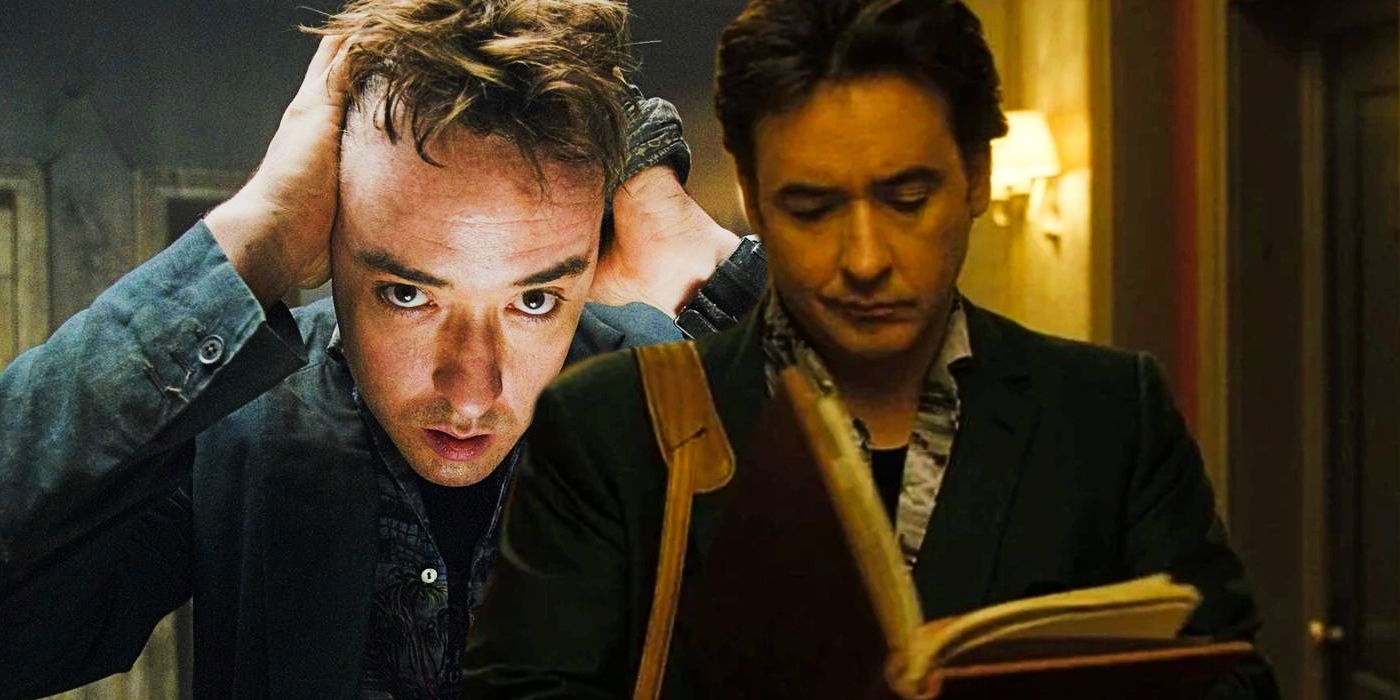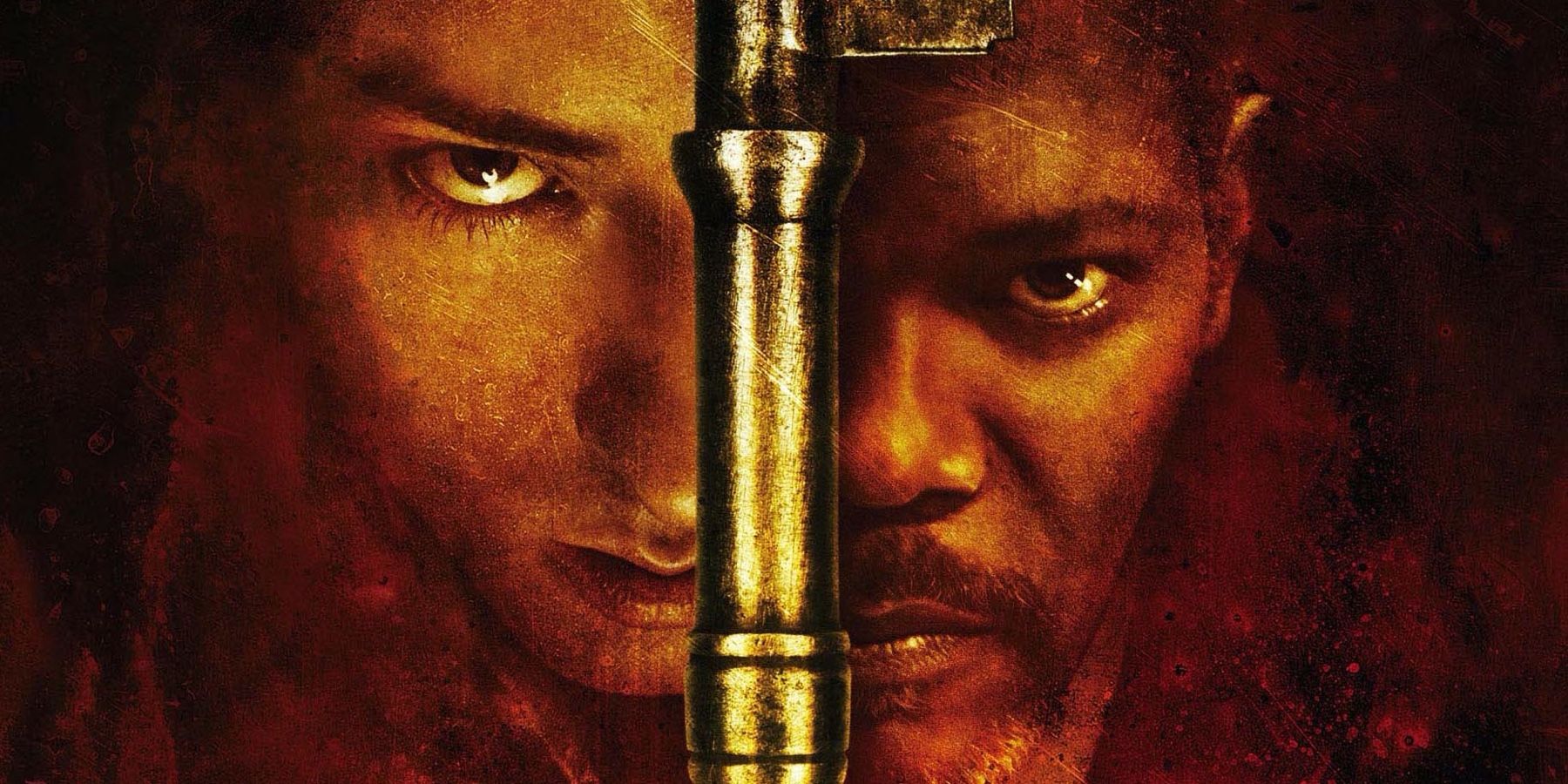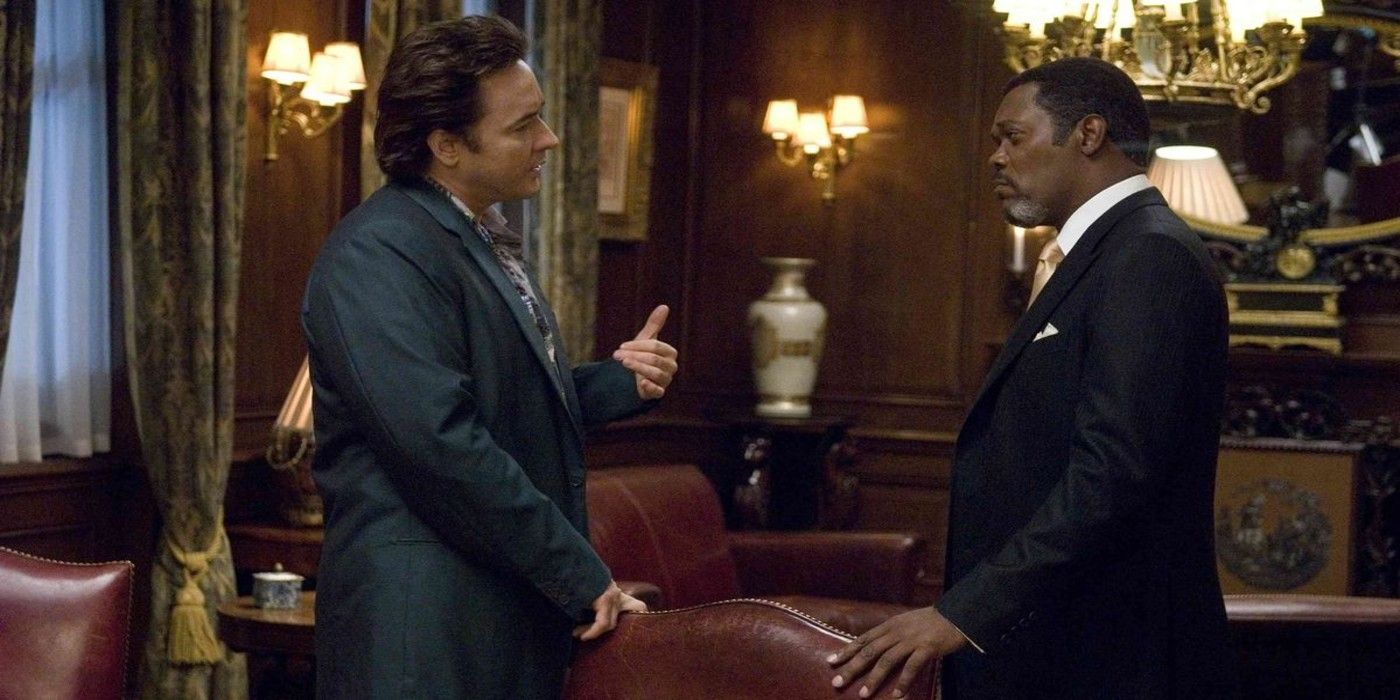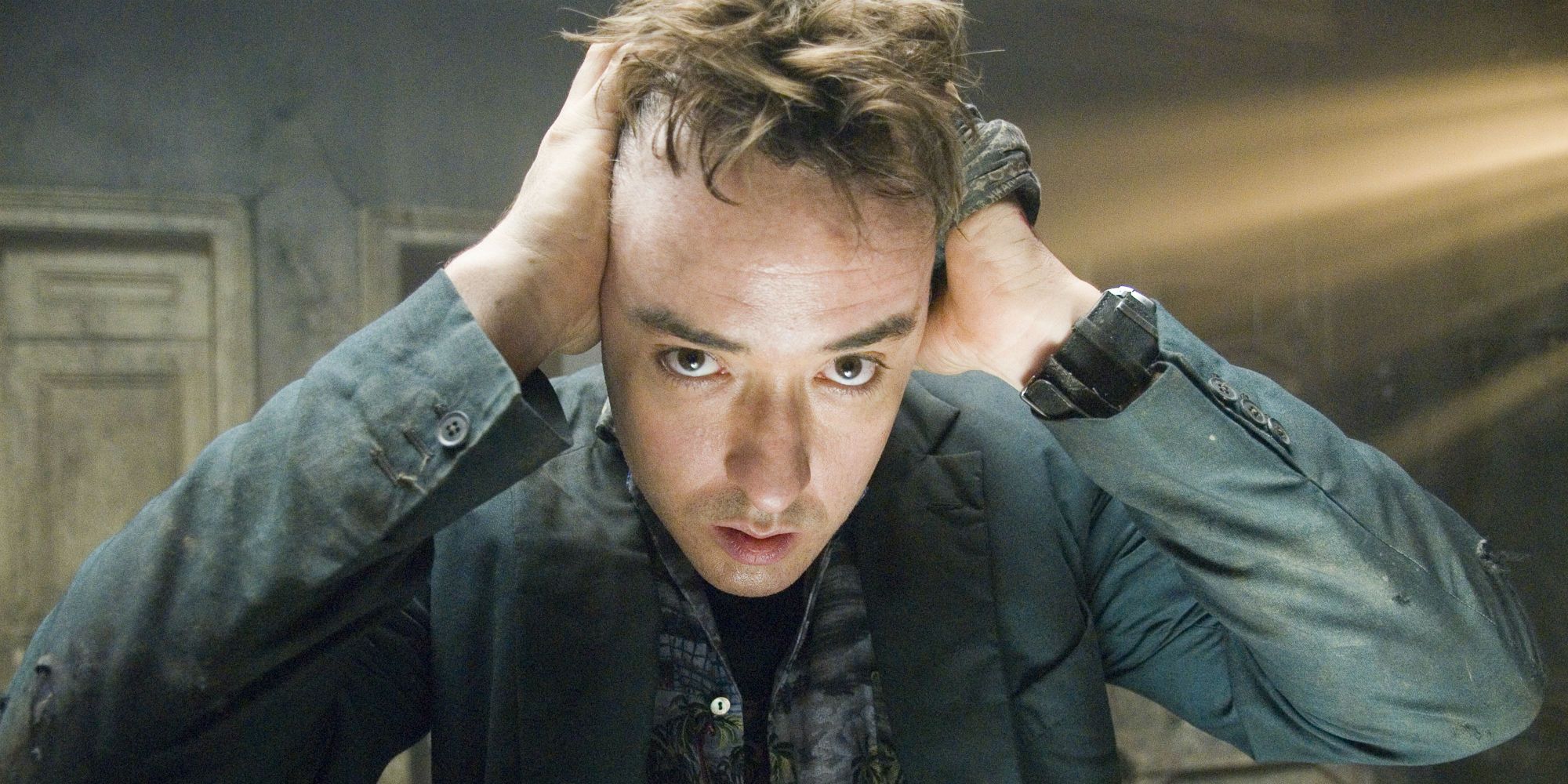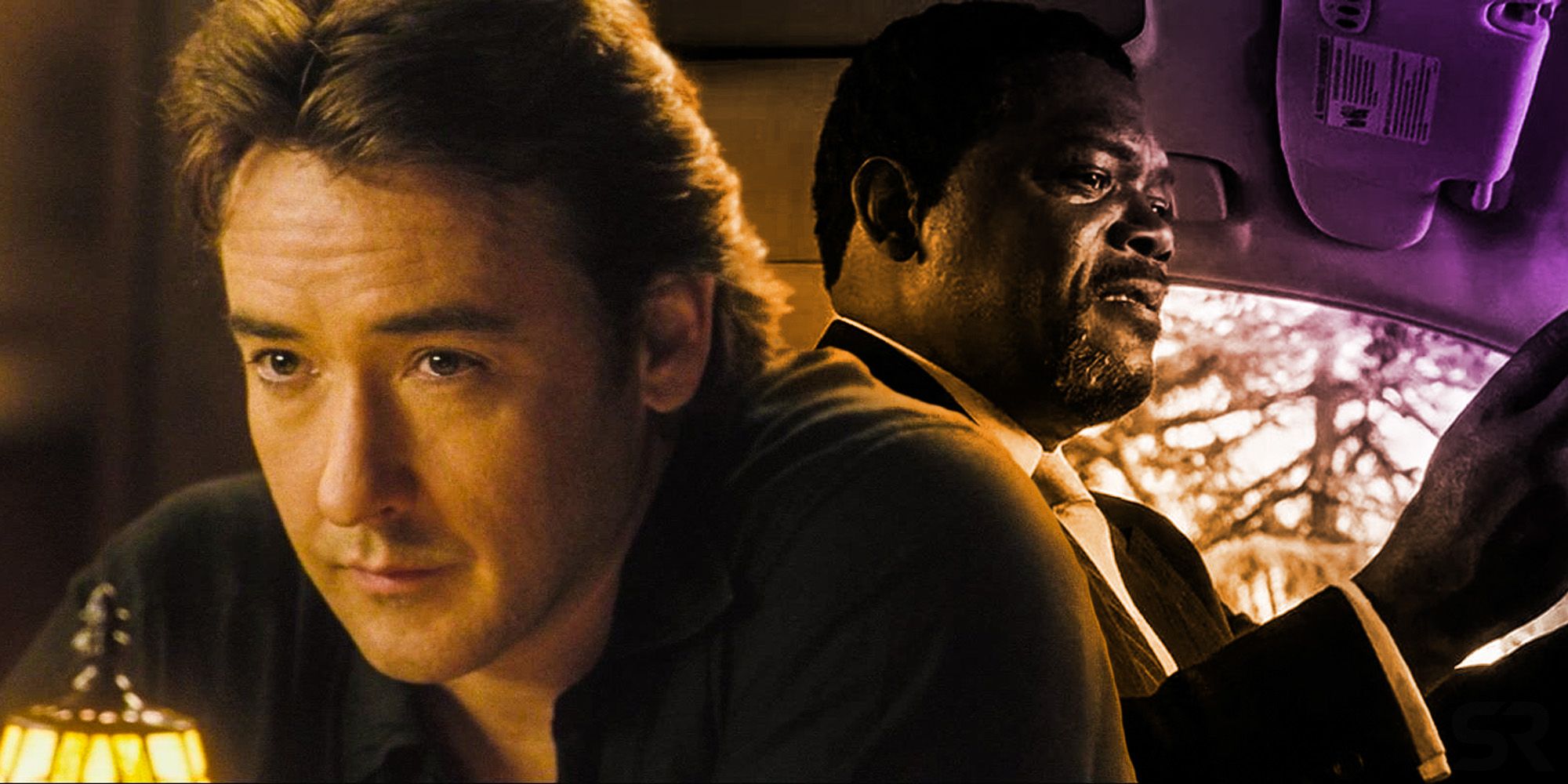Although 2007’s 1408 was relatively well-received, the Stephen King short story adaptation does not receive the kudos that the movie deserves for nailing the author’s style and tone. Even the best adaptations of iconic horror author Stephen King’s work sometimes run into trouble with the author’s notoriously tricky balance of pure horror and character drama. While 2017’s It, for example, was a critically-acclaimed coming-of-age horror-comedy, the 2019 sequel It: Chapter Two was a tonally messy disaster salvaged only by Bill Hader’s standout turn as Richie Tozier.
It is not hard to see why many screenwriters and directors struggle to adapt King’s work. The author’s writing contrasts sequences of broad, sometimes borderline surreal horror with much more grounded character detail. Many filmmakers can’t recapture the delicate tonal balance of King’s horror writing, wherein the realities of divorce and eviction can exist alongside a monstrous shape-shifting demonic clown or a haunted talking telephone.
The same thing that makes King’s writing so effective is what makes his style hard to render faithfully on screen, with many directors and screenwriters opting to cut the realistic character detail or the more outre horror elements and ending up with a project that never feels like classic King. This is what makes 2007’s lone-location psychological horror 1408 such an underrated success story. Adapted from King’s collection Everything’s Eventual, 1408 might be based on a short story, but unlike many feature-length adaptations, the underrated movie makes the most of its source material and manages to make its premise even more compelling than the original tale.
1408 Short Story Explained
Like the original short story of the same name, 1408 follows a cynical paranormal researcher who has made a career of staying in haunted hotels and disproving their claims. A perfectly cast John Cusack nails the character’s burnt-out aura, and alongside Samuel L Jackson as the manager who attempts to discourage Enslin from staying in the eponymous haunted room, the star is one of the only actors to appear onscreen in the movie. Although a few members of Enslin’s immediate family have brief cameos, for long stretches the entire movie consists of Cusack wandering through his hotel room alone. However, unlike the similarly sparse Children of the Corn, this Stephen King adaptation succeeds in turning its limited cast into an assent rather than a liability.
Why 1408’s Movie Adaptation Works
1408’s movie adaptation both expands on the source material and stays true to the story, something that few feature-length adaptations of the format can pull off. Enslin now has a tragic past in including a dead daughter, but viewers still only learn this as he breaks down inside the titular room — there are no unnecessary, tension-alleviating backstory scenes to make the ride less intense. As a result, there is more reason for viewers to care about Enslin, allowing 1408 to sustain the viewer’s attention and keep the story surprising for longer. However, where other Stephen King adaptations like Dr. Sleep made their source material too dark and ended up being oppressively bleak as a result, 1408 keeps the meat of the story — one ordinary man vs one extraordinarily scary haunted hotel room — the same. Since his backstory makes his lack of belief in the afterlife tragic rather than smug, Enslin remains a likable antihero — making his ordeal all the harder to watch.
1408’s Cleverest Adaptation Trick
There is an audacious sequence near the end of act two wherein 1408 cuts to Enslin’s life after his haunted hotel stay. He’s still troubled by the events of the hotel, but he’s starting to recover, and while having lunch with his ex-wife, he’s convinced to write a book about the traumatic experience he had in the titular room. This keeps him busy for a few months until the Stephen King protagonist takes his novel to the post office to send his editor a manuscript — only for the post office’s walls to fall around him as 1408 reveals that this whole imaginary future was a mirage, and he’s still in the room.
The twist is more ambitious than anything in the original King story and only works because viewers assume that the entire movie can’t be contained in one room, meaning they’re shocked when it is. The short story’s limited length means that Enslin suddenly waking up outside the room would be a blatantly obvious misdirect, whereas the movie adaptation can convince viewers that 1408 couldn’t possibly be a chamber piece from start to finish, only for the movie to twist the knife once again. Much like King admitted he was blindsided by The Mist’s movie adaptation and its infamous killer ending, the twist of 1408 takes advantage of the movie’s format and uses it to disarm those familiar with the source material.
Where 1408 Falters
Although 1408 deserves kudos for being one of the most underrated movies made from King’s work, the short story adaptation does falter at the finish. The director’s cut features a superb ending that builds on the original short story — Enslin destroys the room and escapes with his life, as in King’s story, but also reunites with his estranged ex-wife and finds evidence that the room was haunted in the form of his tape recorder. However, the theatrical cut of 1408 features a nonsensical ending that is somehow both too sentimental and too bleak. Not only does Enslin die destroying the hotel room, he then proceeds to inexplicably haunt the hotel’s manager while also simultaneously being depicted as a contented spirit, happy to pass on and see his daughter in the afterlife.
The ending doesn’t add up at all, since Enslin has no reason to haunt the hotel’s manager (the only character who explicitly warned him that he would die if he entered the titular room). Not only that, but the fact that the schmaltzy final shot sees Enslin’s ghost happily reunited with his daughter’s ghost leads the viewer to wonder why he was haunting the manager since he is seemingly happy to be back together with his child. The Stephen King adaptation’s plot holes are hard to ignore after the brutal efficiency of the preceding movie, but fortunately, the director’s cut fixes this mistake with a creepier, superior ending. As a result, 1408 manages to remain one of Stephen King’s most underrated adaptations, even if the movie is not entirely flawless.

